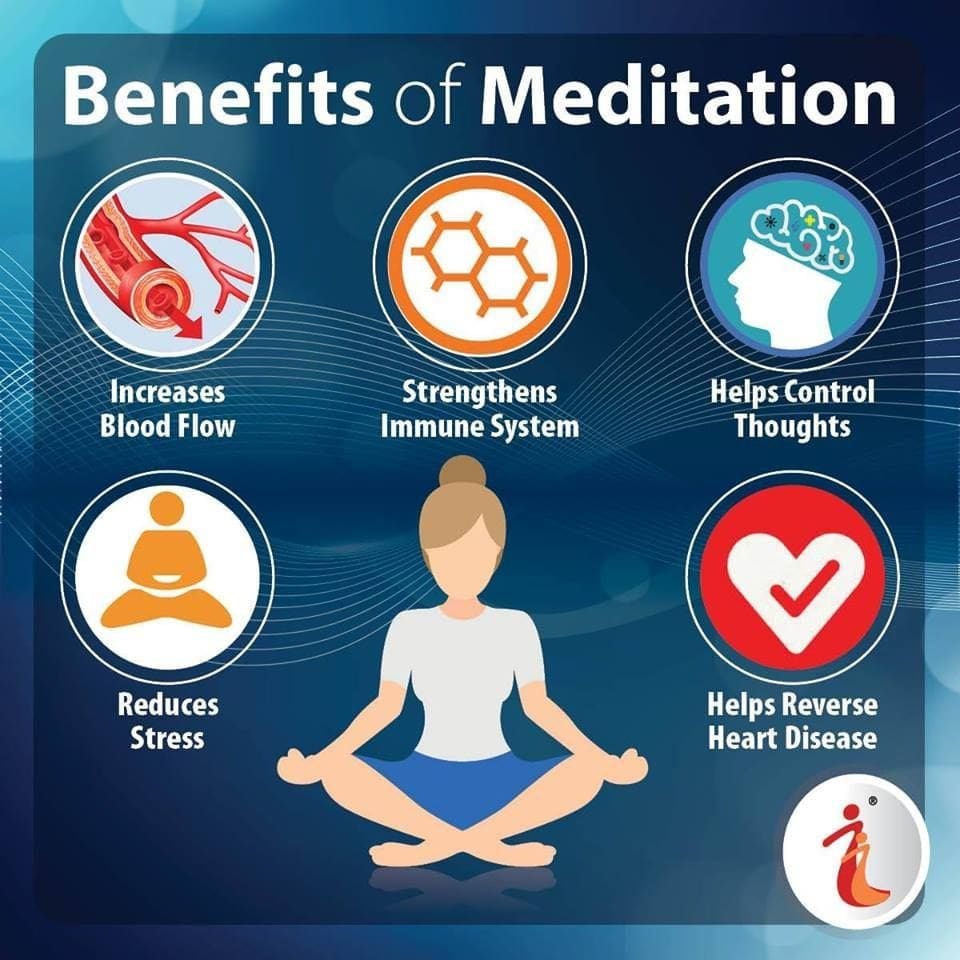The Science of Meditation
Welcome to the fascinating world of meditation and its remarkable impact on sleep quality. In our fast-paced and hectic lives, finding a restful night’s sleep can often feel like an elusive dream. However, science has shown that incorporating meditation into your daily routine can be a game-changer when it comes to improving your sleep. But how exactly does meditation work its magic on our slumber? By quieting the mind and promoting relaxation, meditation helps reduce the stress and anxiety that often disrupts our sleep patterns. Additionally, it can stimulate the production of melatonin, the hormone responsible for regulating sleep. In this article, we will delve deeper into the science behind meditation and explore its transformative effects on sleep quality. So get ready to discover the secrets to a peaceful and rejuvenating night’s sleep through the power of meditation.
The Connection between Meditation and Sleep
Meditation and sleep have a profound connection that has been recognized for centuries. Both practices involve a state of deep relaxation and restoration of the mind and body. When we meditate, we enter a state of focused attention and heightened awareness, which allows us to let go of the thoughts and worries that often keep us awake at night. This state of mental calmness and tranquillity created during meditation has a direct impact on our sleep quality.
Several scientific studies have shown that meditation can help improve the duration and quality of sleep. One study conducted by the University of California, Los Angeles (UCLA), found that individuals who practiced mindfulness meditation experienced fewer symptoms of insomnia and reported better overall sleep quality. Another study published in the Journal of the American Medical Association (JAMA) found that mindfulness meditation significantly reduced sleep disturbances in older adults.
How Meditation Improves Sleep Quality
The benefits of meditation on sleep quality can be attributed to its ability to reduce stress and anxiety. When we meditate, we activate the relaxation response in our body, which helps lower the levels of stress hormones such as cortisol. By reducing stress, meditation creates an ideal environment for sleep by calming the mind and relaxing the body.
Furthermore, meditation has been found to stimulate the production of melatonin, a hormone that regulates our sleep-wake cycle. A study conducted by the University of Massachusetts Medical School found that participants who practiced meditation had increased levels of melatonin compared to those who did not meditate. This increase in melatonin can help regulate sleep patterns and promote a more restful night’s sleep.
Scientific Studies on Meditation and Sleep
Numerous scientific studies have explored the relationship between meditation and sleep, revealing compelling evidence of the positive impact meditation can have on sleep quality. A study published in the journal Sleep Medicine Reviews analysed the findings of 18 different studies and concluded that mindfulness meditation is effective in improving sleep quality and reducing sleep disturbances.
Another study conducted by researchers at Harvard Medical School found that meditation improved sleep quality in individuals with insomnia. The participants in the study reported a significant reduction in the time it took them to fall asleep and an increase in the total sleep time after practicing meditation regularly.
Different Meditation Techniques for Better Sleep
There are various meditation techniques that can be particularly beneficial for improving sleep quality. Mindfulness meditation, which involves focusing on the present moment without judgment, is one of the most widely studied and practiced techniques. By cultivating a non-reactive awareness of our thoughts and emotions, mindfulness meditation helps us detach from the racing thoughts that often keep us awake at night.
Another effective technique is guided meditation, where a trained instructor or a recorded audio guide leads you through a meditation session. This can be especially helpful for beginners or individuals who find it challenging to quiet their mind on their own. Guided meditations often incorporate soothing imagery and relaxation exercises, creating a conducive environment for sleep.
Breathing exercises, such as deep belly breathing or alternate nostril breathing, can also be incorporated into a meditation practice for better sleep. These techniques help activate the body’s relaxation response and promote a sense of calmness and tranquillity that is conducive to sleep.
Creating a Meditation Routine for Optimal Sleep
To harness the full benefits of meditation for sleep improvement, it is essential to establish a regular meditation routine. Consistency is key when it comes to reaping the transformative effects of meditation on sleep quality. Set aside a specific time each day to dedicate to your meditation practice. Whether it’s in the morning, during a lunch break, or before bedtime, find a time that works best for you and commit to it.
Create a peaceful and comfortable environment for your meditation practice. Find a quiet space where you won’t be disturbed and make it inviting by adding soft lighting, calming scents, or soothing music. Consider using a comfortable meditation cushion or chair to support your posture and enhance relaxation.
Start with shorter meditation sessions and gradually increase the duration as you become more comfortable. Even just a few minutes of meditation can have a positive impact on your sleep quality. Remember, it’s the consistency of practice that matters most.
Tips for Integrating Meditation into Your Bedtime Routine
Incorporating meditation into your bedtime routine can be a powerful way to prepare your mind and body for sleep. Here are some tips to help you integrate meditation seamlessly into your night time ritual:
1. Set aside 10-15 minutes before bed to engage in a meditation practice. This will create a transition period between the activities of the day and sleep.
2. Avoid screens and stimulating activities in the hour leading up to bedtime. Instead, engage in calming activities such as reading a book, taking a warm bath, or practicing gentle stretching or yoga.
3. Dim the lights in your bedroom to create a relaxing atmosphere. Consider using candles or a Himalayan salt lamp to provide soft, soothing light.
4. Experiment with different meditation techniques to find what works best for you. Try guided meditations, mindfulness meditation, or breathing exercises to calm the mind and relax the body.
5. Focus on your breath during meditation to anchor your attention and redirect your thoughts away from the worries of the day. Take slow, deep breaths, and exhale slowly to promote relaxation.
Other Lifestyle Factors That Can Enhance the Impact of Meditation on Sleep
While meditation can have a profound impact on sleep quality, it is important to complement your practice with other lifestyle factors that promote healthy sleep habits. Here are some additional tips to enhance the impact of meditation on your sleep:
1. Establish a consistent sleep schedule: Go to bed and wake up at the same time every day, even on weekends. This helps regulate your body’s internal clock and promotes a more consistent sleep-wake cycle.
2. Create a calming bedtime routine: Engage in relaxing activities before bed, such as reading, taking a warm bath, or practicing gentle stretching. This signals to your body that it’s time to wind down and prepare for sleep.
3. Create a sleep-friendly environment: Make sure your bedroom is cool, dark, and quiet. Invest in a comfortable mattress, pillows, and bedding that support your sleep needs.
4. Limit caffeine and alcohol: Avoid consuming caffeine or alcohol close to bedtime as they can disrupt your sleep patterns. Opt for herbal teas or warm milk instead.
5. Exercise regularly: Engaging in regular physical activity can help promote better sleep. However, avoid intense exercise close to bedtime, as it can be stimulating.
The Importance of Consistency in Meditation Practice for Sleep Improvement
Consistency is key when it comes to reaping the benefits of meditation for sleep improvement. Just like any other skill or habit, meditation requires regular practice to be effective. By incorporating meditation into your daily routine, you create a habit that becomes ingrained in your lifestyle.
Commit to a meditation practice that feels sustainable for you. Start with shorter sessions and gradually increase the duration as you become more comfortable. Remember that even a few minutes of meditation each day can have a positive impact on your sleep quality.
Conclusion: Harnessing the Power of Meditation for Restful Sleep
In conclusion, meditation holds immense potential for improving sleep quality and promoting restful nights. By quieting the mind, reducing stress, and stimulating the production of melatonin, meditation helps create an ideal environment for sleep. Scientific studies have consistently shown the positive impact of meditation on sleep, with mindfulness meditation being particularly effective.
By incorporating different meditation techniques into your routine, creating a peaceful environment, and establishing a consistent practice, you can harness the power of meditation to transform your sleep quality. Remember to complement your meditation practice with other lifestyle factors that promote healthy sleep habits, such as a consistent sleep schedule and a calming bedtime routine.
So, if you’re tired of tossing and turning at night, why not give meditation a try? Discover the profound impact it can have on your sleep quality and awaken to a new day feeling refreshed, rejuvenated, and ready to embrace the world. Embrace the power of meditation and unlock the secrets to a peaceful and restorative night’s sleep. Your mind and body will thank you.
Disclaimer
The content is purely informative and educational in nature and should not be construed as medical advice. Please use the content only in consultation with an appropriate certified medical or healthcare professional


